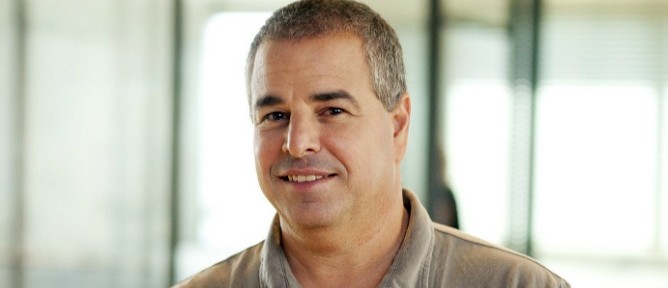
TheTime’s Nir Tarlovski.
Do you have TheTime? For startups in the Tel Aviv area, a visit to this innovative high-tech “incubator” will certainly be no waste of precious minutes.
With an infusion of $4 million from the Israeli office of the McCann Erickson international advertising firm, TheTime is looking for new companies in its core investment areas — telecomm, Internet, media and entertainment.
• Email this article to friends or colleagues
• Share this article on Facebook or Twitter
• Write about and link to this article on your blog
• Local relevancy? Send this article to your local press
A high-tech incubator, like its agricultural distant cousin, aims to nurture young companies through their early stages and to promote cross-pollination. Supported and partially funded by the Office of the Chief Scientist, there are 23 incubators across Israel. TheTime is one of two in Tel Aviv and the only one to focus on Internet companies.
Currently, 35 startups have received funding via TheTime, most of them housed in a 15,000-square-foot office where they share strategies and success stories.
ISRAEL21c caught up with Nir Tarlovski, an entrepreneur-turned-angel-investor who co-founded TheTime with McCann Erickson Israel chairman Ilan Shiloach and the group’s CEO Uri Weinheber. Tarlovski says that now may be the best time ever to start a company in Israel and make it big.
Israel’s “old economy,” as he calls it, managed to create some huge companies like Teva and Check Point. But they are heavily dependent on face-to-face sales and support, having had to open local offices in their major markets.
In the “new economy,” a company in Israel can grow rapidly without ever picking up the phone. “The companies we focus on have only digital products or services, no hardware,” Tarlovski explains. “They get to their customers exclusively via the Internet. There are no products on shelves at retailers. As a result, there is no disadvantage to sitting in Israel.”
Israelis rock at digital marketing
Tarlovski and TheTime created a special report called “No Exit” (a wordplay on the usual endgame of startups to “exit” by selling the company or going public), which maps the most successful Internet-only companies in Israel. The leader, community toolbar maker Conduit, had revenues of more than $500 million last year, Tarlovski points out. TheTime portfolio company Matomy Media Group, which specializes in affiliate marketing, has annual revenues exceeding $100 million.
The secret? Israelis are the best in the world at digital marketing, Tarlovski says, despite years of conventional wisdom that while Israelis are great techies, they’re terrible at marketing.
Marketing today is different, Tarlovski explains. “It’s all about number crunching, about figuring out how much and where to buy advertising online. Everything is measurable, from the graphics to the text. It turns sales into a science. And Israelis are very good at that.”
Therein lies the opportunity. “‘The world is flat’ is not just a great title for a book,” Tarlovski adds. “Today’s Internet offers a real opportunity for Israeli companies to establish global operations centered in Israel, with customers spread throughout the world.”
A new company with a good idea will often raise around $500,000. But to get to a full “A” round with a venture capitalist, the company has to show serious traction in the vacuum between the half and full million offered by venture capitalists. TheTime will invest in the seed round and, if all systems are still a go, will stay with the company financially until the VCs are interested.
This makes TheTime different than the rash of “accelerators” that have grabbed media attention in Silicon Valley and Europe. YCombinator in the United States or SeedCamp in the UK tend to invest only $20,000 to $50,000 in a company.
”It gives the company enough to build a prototype or even a first version of their product, but that’s not enough to get to market and start showing traction,” Tarlovski says.
Time on their side
Tarlovski has been in the tech business since 1994 when he started RSL Communications in New York with Ronald Lauder and Itzhak Fisher. He came back to Israel in 1997 as an angel investor. When the dot.com bubble burst in 2000, he found a niche buying distressed telecom companies, turning them around and selling what was left.
When the market came back a few years later, Tarlovski built on his experience in the telecom world (the “T” in TheTime) but with a positive spin. In many cases, he invests his own money in portfolio companies as well.
TheTime has invested in a sexy set of startups including Tawkon and SiteBlackBox. Will any of these picks become the “Nokia of Israel,” the long sought-after ultimate success marker?
That’s no longer the goal, says Tarlovski. In “No Exit,” Tarlovski quotes Yair Grindlinger of Israeli startup SupportSpace, who asks, “Ten years ago, were there 40 Israeli Internet companies that exceeded $10 million in sales? I don’t think so.”
Is this the beginning of an even greater future for Israeli startups? Time certainly seems to be on their side.

